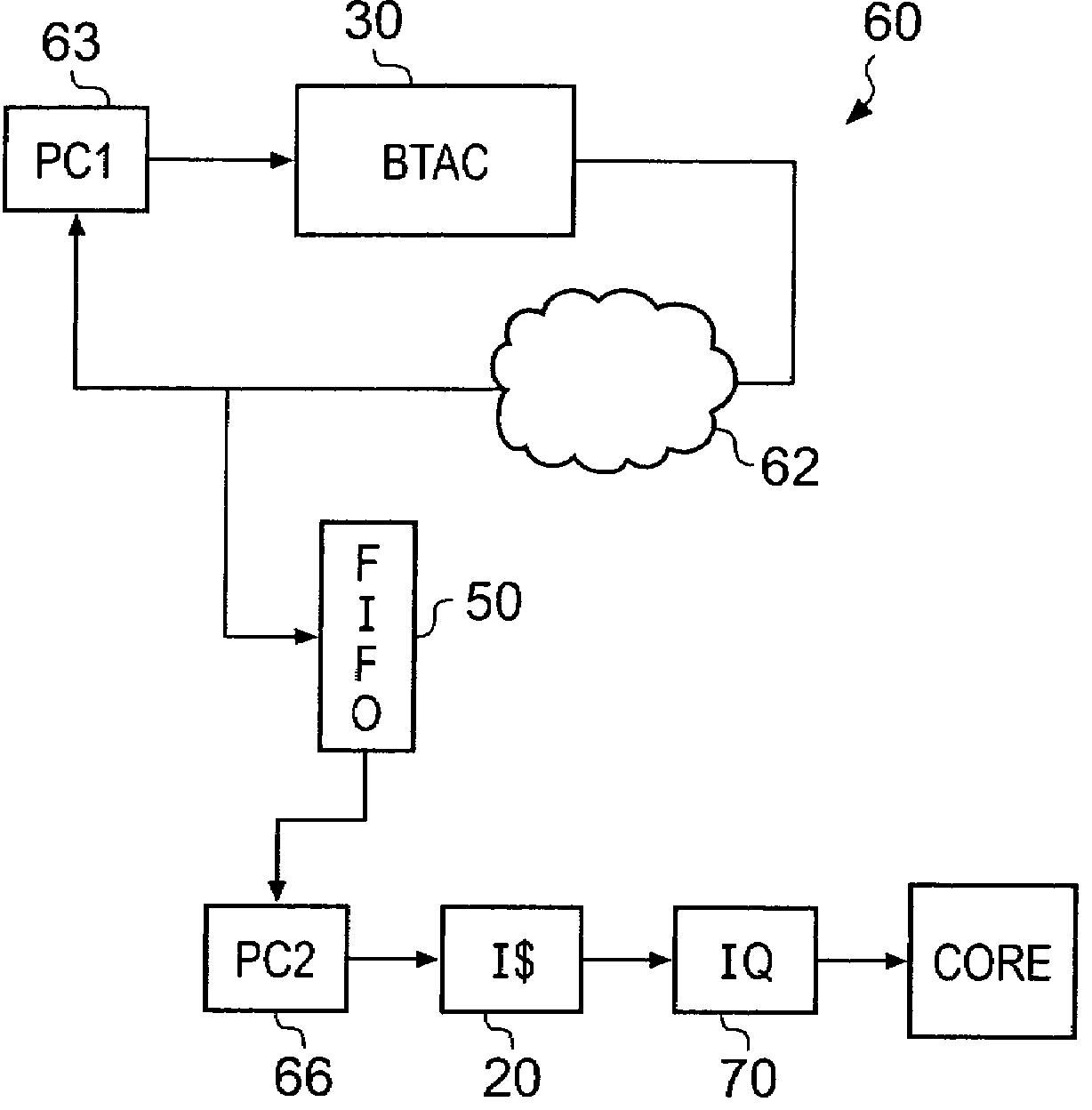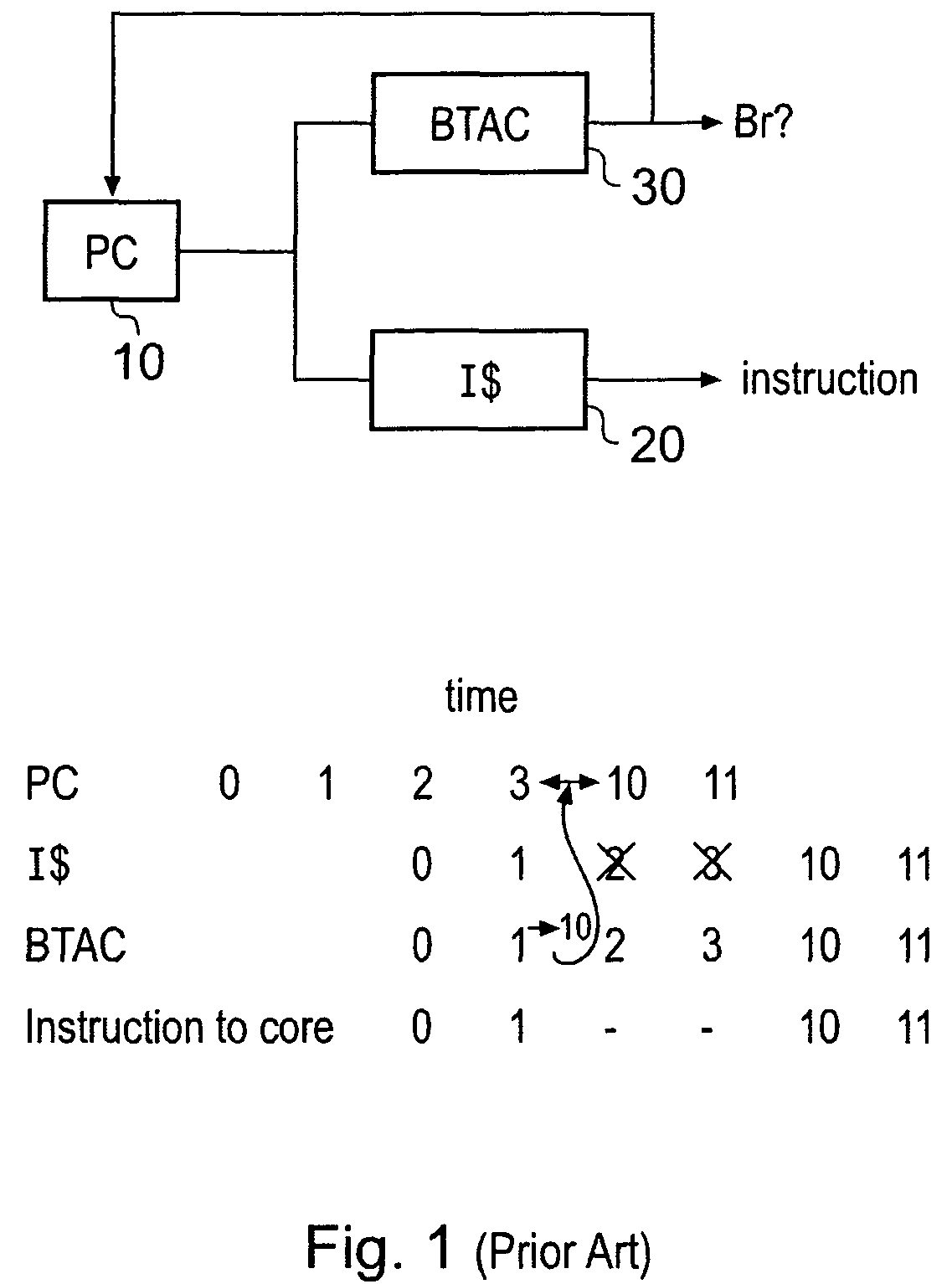Accessing branch predictions ahead of instruction fetching
a branch prediction and instruction technology, applied in the field of data processing systems, can solve problems such as unnecessary data access, system latency, and increase power consumption
- Summary
- Abstract
- Description
- Claims
- Application Information
AI Technical Summary
Benefits of technology
Problems solved by technology
Method used
Image
Examples
Embodiment Construction
[0047]FIG. 3 schematically shows a data processing apparatus 5. Data processing apparatus 5 comprises a memory 40 which although in this embodiment is shown as being within the data processing apparatus, could be located outside of it and an instruction cache I-cache 20, both operable to store instructions. Data processing apparatus 5 also comprises a prefetch unit 60 for fetching instructions in an instruction stream from the I-cache 20 or if they are not present in the instruction cache 20, from memory 40 and sending these instructions to processor core 100 and in particular to the instruction decoder 95 within the processor core for decoding and execution. Thus, a stream of instructions from a program are fetched by prefetch unit 60 and are sent to the processor for processing.
[0048]Within the prefetch unit 60, there is dynamic branch prediction logic 62. Dynamic branch prediction logic 62 uses historical information about what happened one or more times that a particular branch ...
PUM
 Login to View More
Login to View More Abstract
Description
Claims
Application Information
 Login to View More
Login to View More - R&D
- Intellectual Property
- Life Sciences
- Materials
- Tech Scout
- Unparalleled Data Quality
- Higher Quality Content
- 60% Fewer Hallucinations
Browse by: Latest US Patents, China's latest patents, Technical Efficacy Thesaurus, Application Domain, Technology Topic, Popular Technical Reports.
© 2025 PatSnap. All rights reserved.Legal|Privacy policy|Modern Slavery Act Transparency Statement|Sitemap|About US| Contact US: help@patsnap.com



